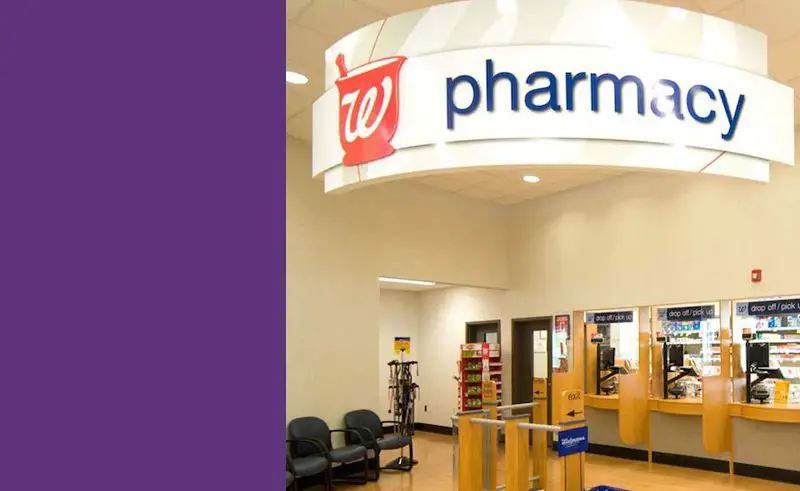A nuclear pharmacist is a type of pharmacist who specializes in the field of nuclear pharmacy. This type of pharmacy deals with the preparation and dispensing of radioactive drugs, which are used for both diagnosis and treatment purposes. Nuclear pharmacists are an important part of the medical team, as they play a vital role in ensuring that patients receive the correct dosage of medication. If you are planning on becoming a nuclear pharmacist, here’s a complete guide on salary, skills required, job outlook and several pros and cons you need to know.
Page Contents
Salary of an Authorized Nuclear Pharmacist
A nuclear pharmacist salary can vary depending on a number of factors, such as experience, location, and employer. However, nuclear pharmacists can expect to earn a salary that is standard with other types of pharmacists. According to the Bureau of Labor Statistics, the median annual salary for all pharmacists in 2019 was $127,820.
The median salary for nuclear pharmacists is expected to be $122,000 in 2022, according to the latest data from the Bureau of Labor Statistics. This is an increase of $10,000 from the median average salary in 2018, which was $112,000. The BLS projects that the demand for nuclear pharmacists will continue to grow at a rate of 9 percent between 2018 and 2028, which is faster than the average for all occupations.
The majority of nuclear pharmacists work in hospitals, but there are also opportunities for those who want to work in research or teaching positions. With the aging population and the increasing use of nuclear medicine, the demand for nuclear pharmacists is expected to continue to grow in the coming years.

Factors Affecting Nuclear Pharmacist Salary
A nuclear pharmacist’s salary is determined by a number of factors. Location is the most common of all. Nuclear pharmacies in urban areas tend to pay higher salaries than those in rural areas. This is due to the higher cost of living in urban areas, as well as the increased demand for pharmaceutical services in these areas. In a recent study, BLS states that the average annual salary of pharmacists in New York City is $145,610, while the average annual salary of pharmacists in Peoria, Illinois is $119,860.
Another factor affecting a nuclear pharmacist’s salary is the size of the nuclear pharmacy and nuclear medicine departments. In general, small and local pharmacies may not be able to offer the same salary as those with large and highly established companies. Hospitals and government agencies are more likely to offer higher salaries.
A country’s economic conditions likewise affect a nuclear pharmacist’s salary. In times of economic recession, salaries may be frozen or even reduced. In times of economic growth, however, salaries may increase.
Significantly, a more experienced pharmacist may be able to command higher salaries than those who are just starting out. Those who are in the beginning of their careers can expect to earn a salary that is slightly lower than the median annual salary for all pharmacists ($127,820). Experienced nuclear pharmacists can expect to see their salaries increase. The Bureau of Labor Statistics reports that the top 10% of earners in this field makes an annual salary of $183,180 or more.
How Do I Become a Nuclear Pharmacist?
A nuclear pharmacist is a specialist who dispenses radio-pharmaceuticals to patients for therapeutic purposes. In order to become a nuclear pharmacist, one must first complete a four year pharmacy degree program and obtain a license to practice pharmacy in their state of residence. After completing a degree program and obtaining licensure, interested individuals can then complete a residency or fellowship program in nuclear pharmacy. These programs typically last one to two years and provide advanced training in the dispensing of radio-pharmaceuticals and the management of nuclear pharmacies. Upon completion of a residency or fellowship program, individuals can then take the Board of Pharmacy Specialties’ Nuclear Pharmacy Certification Examination to become certified nuclear pharmacists.
Basically, it will take 4-5 years to become a licensed nuclear pharmacist. But for more advanced training and certification, it may require up to 6 years.

Pros and Cons of Being a Nuclear Pharmacist
As we have mentioned already, a nuclear pharmacist is a professional who prepares and dispenses radioactive drugs for use in nuclear medicine procedures. Nuclear pharmacists must have a thorough knowledge of the properties of radioisotopes, and they must be able to safely handle these materials. They also need to be able to effectively communicate with other members of the healthcare team, as well as with patients and their families.
The pros of being a nuclear pharmacist include being able to work in a cutting-edge field and having the opportunity to help patients receive life-saving treatment. While the cons of the job include potential exposure to radiation and the need to work with hazardous materials. Nevertheless, despite the risks, a lot of nuclear pharmacists report feeling a great sense of satisfaction from knowing that they are playing an important role in the delivery of quality healthcare.
Skills Required to Become a Successful Nuclear Pharmacist
Nuclear pharmacists are highly trained and skilled professionals who dispense radioactive drugs used in nuclear medicine procedures. Nuclear pharmacists should have experience in compounding and dispensing radioactive drugs, as well as safety and handling procedures. In addition, nuclear pharmacists must be licensed by the state in which they practice. To maintain their license, nuclear pharmacists must complete continuing education credits on a regular basis.
Other specialized skills a nuclear pharmacist should have are: (1) Extensive research skills to determine which radioactive medicines can be used on patients in the diagnosis and treatment of their illnesses, (2) knowledge on composition of certain drugs and how radiation works, (3) clear and effective communication to co-workers and patients, and (4) a high sense of responsibility and accountability in the handling of radioactive materials and components.
As we can see, becoming a successful nuclear pharmacist requires a great deal of knowledge and training. But to those who choose this career path, it is said to be both challenging and rewarding.
Job Outlook for Nuclear Pharmacists
According to the Bureau of Labor Statistics, the job outlook for nuclear pharmacists is positive, with a projected employment growth of 6% from 2019 to 2029. This growth is due in part to the aging population and the increasing use of nuclear medicine to diagnose and treat conditions such as cancer and heart disease. Nuclear pharmacists typically hold a Doctor of Pharmacy (Pharm.D.) degree and must be licensed to practice in their state of residence. In addition, most nuclear pharmacists complete a one-year residency program specializing in nuclear pharmacy. With the aging population and the increasing use of nuclear medicine, the job outlook for nuclear pharmacists is expected to remain positive in the coming years.
Conclusion: Should You Be a Nuclear Pharmacist?
Yes, a nuclear pharmacist is a promising career for those who would like to take part in ensuring that patients receive the correct dosage of medication. It requires 4-6 years of study and training to become a certified nuclear pharmacist. Despite the health risks that accompany this profession, it is both rewarding and high paying as the median annual salary for all pharmacists ($127,820). Factors that affect a nuclear pharmacist’s salary include location, employer and economic conditions. Those with more experience and advanced degrees/certifications as nuclear pharmacists can expect to see their salaries increase significantly.




